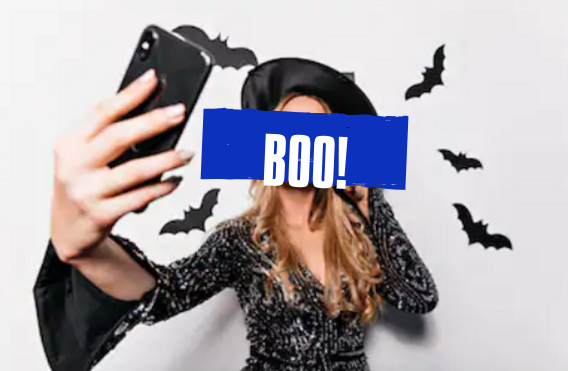Avoiding Cultural Appropriation This Halloween

Halloween is just about here! It’s a holiday where one can dress up and have fun. But cultural appropriation, a term that is discussed and debated across many platforms, can make a costume controversial. Cultural appropriation is the "unacknowledged or inappropriate adoption of the practices, ideas, etc of one person or society by members of another and typically more dominant people or society."
Some controversies that have come up include costumes that mimic or are influenced by another culture. Prime examples include geishas, ninjas, 'sexy' Native American princesses, or costumes mimicking Arab, Mexican, or even gypsy culture. These kinds of costumes are related to real cultures. Many people and even celebrities don't realize how offensive these kinds of costumes can be.
Candy Skull Makeup Costume / credit: gettyimages
Back in 2016, celebrity Hilary Duff and her boyfriend Jason Walsh were under fire for their Halloween costume. The two went to the Casamigos Halloween party in Beverly Hills, California. Hilary Duff was dressed as a sexy pilgrim and Jason Walsh was dressed in a costume mimicking a Native American tribal chief. The photos they posted from the event faced major backlash and received negative criticism, calling them ignorant.
Hilary and her boyfriend in inappropriate cultural costumes / Photo Credit: Getty ImagesWearing a Native costume, for instance, is very inappropriate. For Native Americans are still here, headdresses and regalia are supposed to be earned, and overall; the history of the Pilgrims and their relationship with Natives should make clear that this costume would not be of good taste. She did the proper thing, however: she apologized to the Native community and took down the photos.
Apology Tweet / Source: Twitter via Hilary Duff
Just last year, at Brigham Young University, a student reportedly did blackface at a Halloween party. This upset a lot of students, Black and other races alike. The student, who was part of the communications school, apologized. The school itself and Edward L. Carter, the director of the communications school at BYU, reported that he spoke with many students about the controversy and said that "this kind of behavior is out of line." Many other students have reported blackface in multiple universities in the United States. Two students left the University of Oklahoma after doing blackface, being racist, and using slurs. The university found it highly inappropriate and suspended them. There was another blackface incident at the University of Tennessee, but the student involved reportedly won't be suspended.
Blackface is highly inappropriate and offensive towards the black community. And any skin color in general: yellowface, brownface, redface, is very derogatory towards those racial groups. There's a long, painful history when it comes to America and the treatment of Blacks, Natives, Latinos, and Asians. Doing these kinds of offensive actions is insulting towards minorities and places a superiority on white peoples and their skin color. Universities should take action and prevent this type of hurtful actions from occurring and suspend students who are racist towards any minority group.
This Halloween, think before you shop. Is my costume offensive or mimicking a culture? Are you wearing traditional garments? Are you using paint or makeup to lighten or darken your skin? Be mindful and smarter. A culture isn't a costume.









